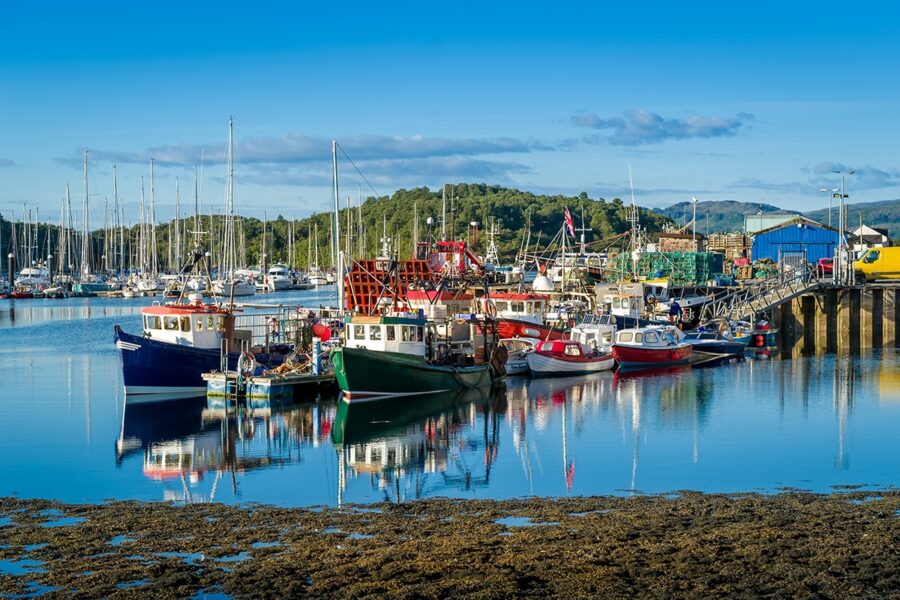Curbs on fishing loom to protect marine environment
The Scottish government and the Scottish Green Party parliamentary group have agreed to work together over the next five years in a deal that could have far-reaching implications for the Scottish fishing industry, reports Tim Oliver.
The power-sharing agreement has a heavy emphasis on marine environmental protection. It includes firm commitments to greatly expand offshore renewables and wind farms, strengthen MPAs and introduce highly protected MPAs (HPMAs – effectively no-take zones), restrict fishing in inshore waters, extend VMS to all vessels, and strengthen monitoring and compliance.
It also includes a commitment to hold a referendum on Scottish independence in the current parliamentary session. The parties say they will ‘work together to make the case that Scotland should be an independent country within the European Union’.
The SFF said the deal included policies that will ‘inevitably impact’ on the fishing industry, and that it wanted to engage with ministers and officials on the details ‘as soon as possible’.
The SNP and Scottish Green Party say they want to build a green economic recovery from Covid, respond to the climate emergency and create a fairer country.
Among a wide range of policy areas, the Bute House Agreement details collaboration on the climate emergency, natural environment and energy.
It includes a commitment to a strengthened framework of support for the marine renewables and offshore wind sectors.
The SNP fell narrowly short of outright victory in Scotland’s elections in May, and the Greens’ support will give it a small governing majority. The new power-sharing partnership will include the nomination of two Green MSPs to be Scottish government ministers – the first time the Greens have been in government anywhere in the UK.
First minister Nicola Sturgeon said the ‘ground-breaking agreement’ delivers ‘bold policy action on pressing issues’. These include steps to accelerate Scotland’s transition to net zero, a £500m 10-year transition fund for North East Scotland, and a focus on green jobs.
Green Party co-leader Patrick Harvie said the agreement was ‘a historic moment’ and that ‘the stakes could not be higher, with the COP26 climate conference coming to Glasgow in November.
Elspeth Macdonald, chief executive of the SFF, said: “The Scottish fishing industry is already climate-smart, producing highly nutritious protein food with a much lower carbon footprint than meat and even most vegetables.
“Clearly it will take time to work through all the detail of this agreement, but we have been working with the Scottish government for many years on marine conservation, having been fully committed to processes that depend upon robust evidence and sound science. It is essential that such approaches continue in future.”
She said it would also be essential to see ‘the full and cumulative economic impact assessment of any new measures on our fishing communities’.
“This is an industry that regards sustainability as a way of life, not just a catchphrase, because the livelihoods of skippers and their crew depend upon healthy fish stocks, and healthy fish stocks depend upon biodiverse and productive ecosystems,” said the SFF chief.
“There are policies here that will inevitably impact on our industry and on how we produce our climate-smart food.
“We want to be engaged with ministers and civil servants on the detail as soon as possible so that we can share our knowledge on how to achieve common goals while still maintaining a healthy sector.”
The SNP and Scottish Green Party will aim to deliver between eight and 12GW of installed onshore wind by 2030.
This will be supported by the changes in the planning system needed to permit the growth of ‘this essential, zero-carbon sector’.
A Natural Environment Bill will put in place key legislative changes to restore and protect nature, and initiate actions to deliver an agreement to protect 30% of Scotland’s land and seas by 2030, and highly protect 10%.
These targets will ‘drive action across government’, including fisheries policies and legislation, says the agreement.
This story was taken from the latest issue of Fishing News. For more up-to-date and in-depth reports on the UK and Irish commercial fishing sector, subscribe to Fishing News here or buy the latest single issue for just £3.30 here.








